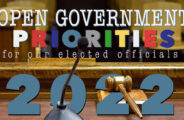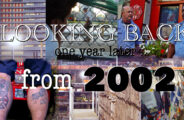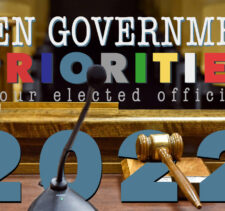Disturbing N.T. audit report sees Republican council reject Alderman Tylec’s “fiscal stability committee”
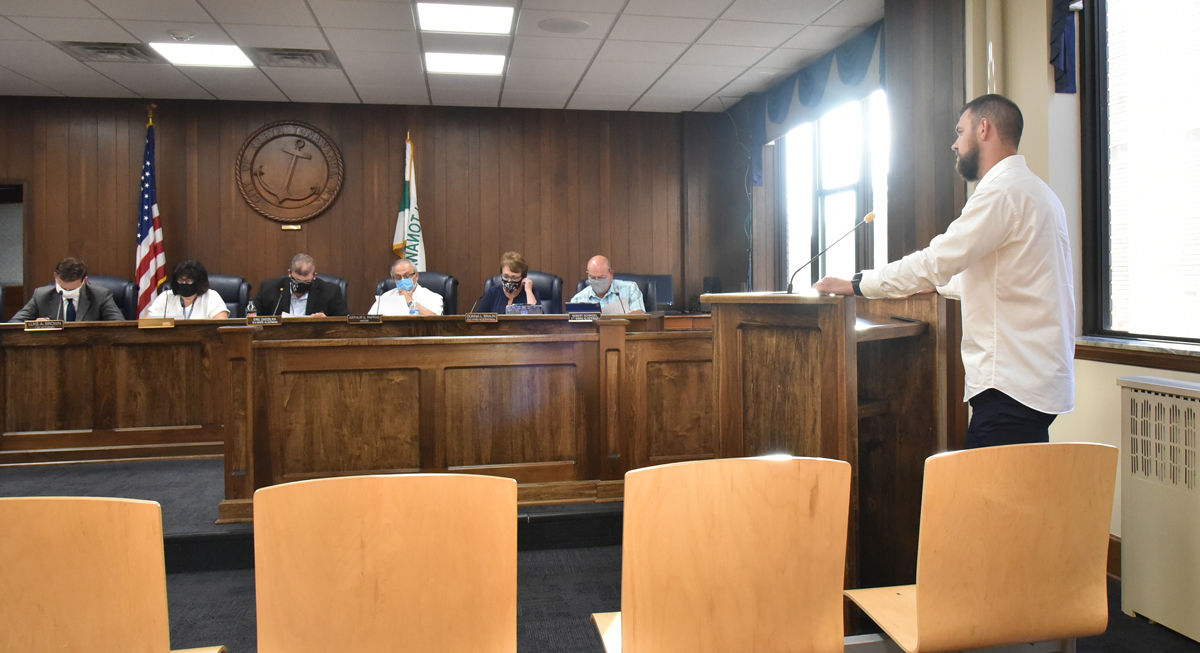
“The Mayor and Council did not adopt structurally balanced budgets, properly monitor the City’s financial operations or take appropriate actions to maintain the City’s fiscal stability.”
That’s the verdict rendered by New York State’s Office of the Comptroller after reviewing North Tonawanda’s finances from Jan. 1, 2017, through April 27, 2020.
But there’s more …
“The general and sewer funds experienced operating deficits from 2017 through 2019.”
“Despite the City’s deteriorating financial condition, officials did not establish a fund balance policy, multiyear financial plan or capital plan.”
“The Mayor’s and City Council’s budgeting practices and poor financial management have left the City in a vulnerable financial position.”
As the city attempts to navigate the local uncertainties of a global pandemic — and try to build on the faint glimmer of progress seen through 2019 — it will be doing it with less sales tax revenue, a reserve fund smaller than ever and bad fiscal prospects going into 2021.
“The City’s financial condition will continue to decline during 2020 because the adopted budget is not structurally balanced. Although City officials did not appropriate fund balance as a financing source in the 2020 adopted budget, they balanced the budget by relying on ‘one-shot’ revenues. These included proceeds from the sale of cell towers and real property and overly optimistic increases in revenues, such as sales tax, which likely will not be realized in the current year.”
The Republican-majority council says they will comply with and enact all the fiscal prescriptions in the Comptroller’s damning audit report which includes:
“Take appropriate action to remedy the financial condition problems affecting the City.”
“Adopt structurally balanced budgets that include realistic estimates.”
“Closely monitor finances to prevent further decline in financial condition.”
However, as one resident commented during the streaming of Tuesday’s council workshop, why would the people responsible for the city’s financial mishandling be trusted to fix it?
The lack of a public-facing budget process is a big part of how for years these secretive, last-minute and politically motivated unsound budgets came to be and put the city in a “vulnerable financial position.”
Alderman at Large Austin Tylec at Tuesday’s common council workshop session asked the other council members to support his “fiscal stability committee” that would involve the public, the council and relevant department heads. It would meet bi-weekly to keep a constant eye on the city’s finances, go over revenues and expenditures, and save the public from surprises or alert them to questionable financial decisions and practices.
The Republicans on the council unequivocally said they don’t need that.
“We are the elected officials,” said council president Eric Zadzilka. “I think this is what we are expected to deal with when um things are needed to be corrected,” he said.
“It is our leadership that has to drive this train,” said Alderman at Large Robert Pecoraro (below left).
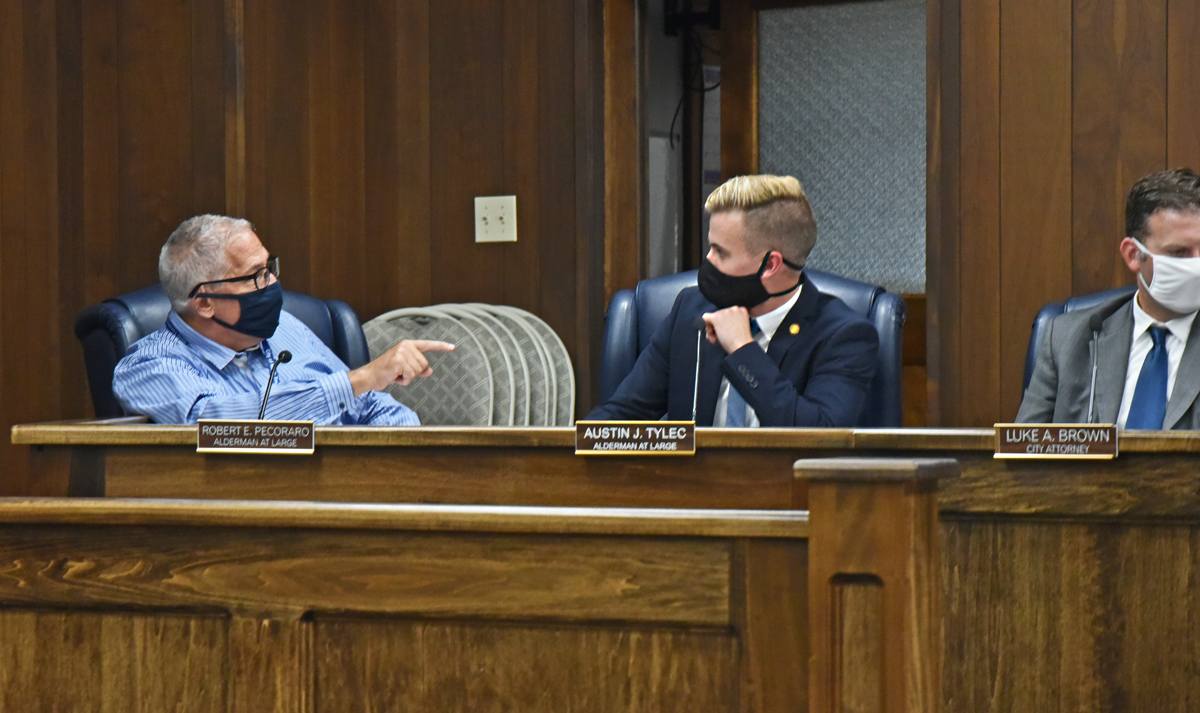
New chief account Jeffrey Zellner spoke before the council Tuesday at his first public session (despite Republican members promising a report on the city’s finances by June, which still hasn’t happened).
When Tylec asked Zellner (below) if he thought the committee could be beneficial to the new chief accountant — who was sweating bullets and even said during his presentation “oh god this isn’t easy” — he said yes. (Not to mention the gains in open government and transparency of the budget process which is always highly secretive and last minute with few meaningful changes made in the brief window the proposed budget is made public and when it’s adopted by council.)
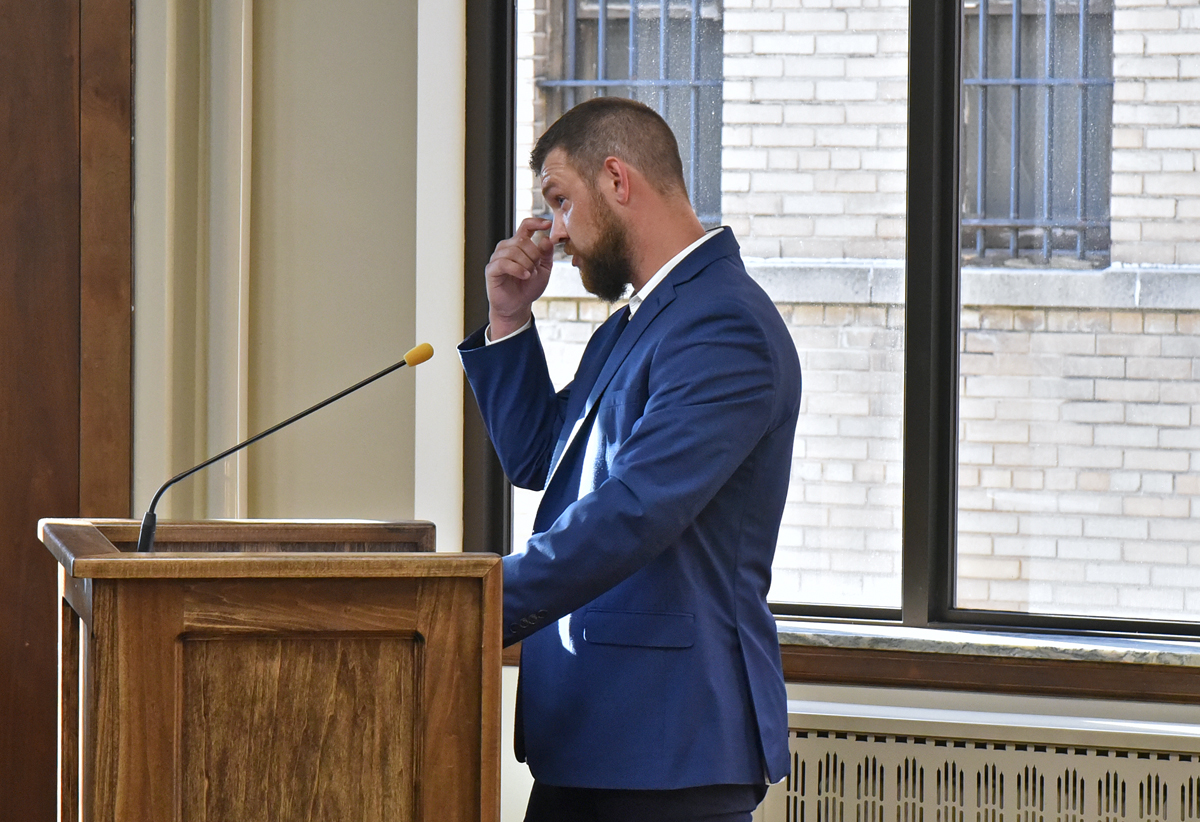
However, when council president Erik Zadzilka and Mayor Arthur Pappas shared their displeasure with Tylec’s committee, Zellner’s answer changed markedly.
Zellner now said he had doubts because it could cost the city money to have him participate in this public-facing budget process. To which Tylec responded that an involved and robust process involving the chief accountant could very well save the city significant amounts of money.
The city council and the chief accountant have three months to prepare a plan of corrective action to the State’s Comptroller, Thomas DiNapoli.
The most encouraging news to emerge out of Tuesday’s troubling council workshop is that while Tylec’s “fiscal stability committee” is dead in the water — which would have benefitted residents and kept our city officials more accountable on the most important thing they do — Zellner promised monthly updates on the city’s finances going forward.
The full audit report can be found here.
Some additional findings:
“We prepared a cash flow analysis in February 2020 and found the City would not have sufficient cash to pay its February and March payroll and other current liabilities unless officials took immediate action However, City officials were unaware of the severe impending cash shortage because no one had prepared a cash flow analysis or was otherwise monitoring cash balances.”
“Despite the City’s deteriorating financial condition, City officials have not developed a written multiyear financial plan, which would aid in planning and managing the City’s finances and operations, or a written multiyear capital plan. A multiyear financial plan and capital plan could help officials develop more structurally balanced budgets, assess alternative approaches to financial issues – such as raising real property taxes to finance annual operations or reducing services – and assist with properly addressing long-term capital needs.
“Most likely, the City’s finances will be significantly affected by the pandemic and the City’s financial condition will worsen The Mayor’s and Council’s budgeting practices and poor financial management have left the City in a vulnerable financial position With fund balance depleted, they have limited options available to fund any increases in operating costs.”
“If the Mayor and the Council choose to address budget shortfalls by increasing property taxes, the increases could be significant Otherwise, they will have to identify new revenue sources or use a combination of increased revenues and decreased expenditures to balance the 2021 budget.”
The full audit report can be found here.
Here are some additional findings:
“We prepared a cash flow analysis in February 2020 and found the City would not have sufficient cash to pay its February and March payroll and other current liabilities unless officials took immediate action However, City officials were unaware of the severe impending cash shortage because no one had prepared a cash flow analysis or was otherwise monitoring cash balances.”
“Despite the City’s deteriorating financial condition, City officials have not developed a written multiyear financial plan, which would aid in planning and managing the City’s finances and operations, or a written multiyear capital plan. A multiyear financial plan and capital plan could help officials develop more structurally balanced budgets, assess alternative approaches to financial issues – such as raising real property taxes to finance annual operations or reducing services – and assist with properly addressing long-term capital needs.
“Most likely, the City’s finances will be significantly affected by the pandemic and the City’s financial condition will worsen The Mayor’s and Council’s budgeting practices and poor financial management have left the City in a vulnerable financial position With fund balance depleted, they have limited options available to fund any increases in operating costs.”
“If the Mayor and the Council choose to address budget shortfalls by increasing property taxes, the increases could be significant Otherwise, they will have to identify new revenue sources or use a combination of increased revenues and decreased expenditures to balance the 2021 budget.”















